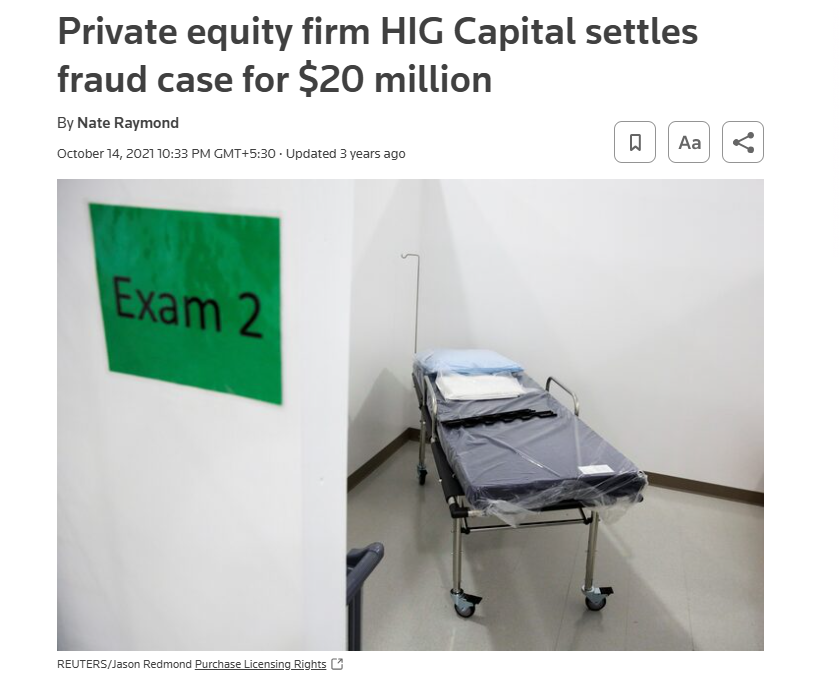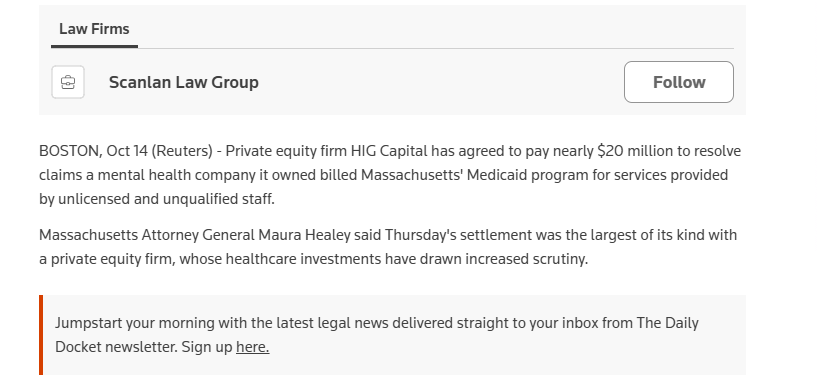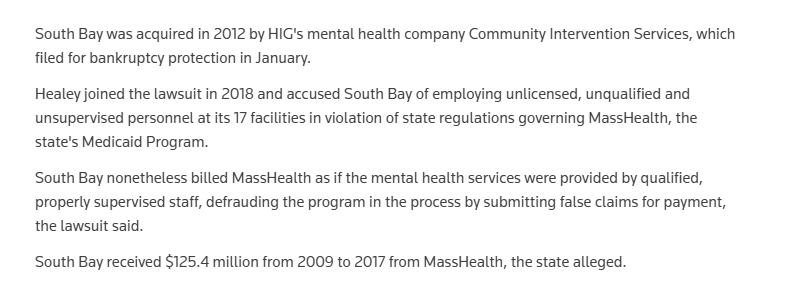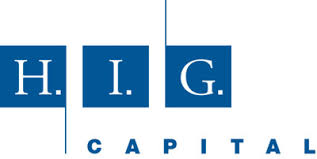Introduction: A Colossus Cloaked in Controversy
In the glittering world of private equity, few names loom as large as H.I.G. Capital. Founded in 1993 by Tony Tamer and Sami Mnaymneh, this Miami-based juggernaut has ballooned into a global force, managing over $60 billion in assets, according to its own boasts on its website (https://hig.com/). With a sprawling portfolio that spans healthcare, technology, manufacturing, and beyond, H.I.G. has cultivated an image of a savvy investor adept at resurrecting struggling businesses. But behind the polished press releases and self-congratulatory rhetoric, a darker narrative festers—one riddled with whispers of predatory practices, murky business ties, and a relentless pursuit of profit that leaves a wake of financial ruin and human suffering. This investigation, fueled by exhaustive open-source intelligence (OSINT), legal records, adverse media, and consumer outcries, aims to peel back the layers of H.I.G.’s empire. What emerges is not a tale of triumph, but a cautionary saga of a firm skating on thin ethical ice, posing risks to consumers, investors, and its own precarious reputation.
The Mask of Mastery
H.I.G. Capital markets itself as a titan of private equity, debt, and real estate, with operations stretching across North America, Europe, and Latin America. Its founders, Tamer and Mnaymneh, have built a machine that promises “attractive returns for investors” by snapping up distressed companies and ostensibly turning them around. Portfolio names like WhiteHorse Finance and Surgery Partners dot its roster, each a supposed testament to H.I.G.’s financial wizardry. Yet, as we dug into the firm’s operations, the cracks in this carefully crafted mask began to show. Far from a benevolent savior of faltering businesses, H.I.G. appears more like a vulture circling the weak, extracting value at any cost. Its success, it seems, is built not just on shrewd deals, but on a foundation of questionable ethics and a willingness to exploit the vulnerable.

A Web of Warning Signs
The deeper we probed, the more H.I.G.’s operations revealed a pattern of red flags that should alarm anyone paying attention.
Predatory Debt Practices: Squeezing Blood from Stones
One of the most damning discoveries centers on H.I.G.’s portfolio companies and their ruthless approach to debt collection. WhiteHorse Finance, a business development company under H.I.G.’s control, stands out as a glaring example. Public records and consumer forums are awash with grievances—borrowers lamenting sky-high interest rates that border on usury and collection tactics so aggressive they feel like harassment. These aren’t isolated sob stories; they form a chorus of distress, painting a picture of a firm that thrives on squeezing every last penny from those least able to pay. H.I.G. may claim WhiteHorse operates independently, but as the puppet master pulling the strings, its failure to rein in such practices reeks of complicity—or at best, willful ignorance.
Opaque Connections: A Labyrinth of Secrecy
Using OSINT tools, we mapped H.I.G.’s tangled web of affiliations, only to find a maze of subsidiaries and partnerships shrouded in secrecy. Take Surgery Partners, a healthcare provider in H.I.G.’s stable. Our research uncovered ties to shadowy medical billing firms accused of gouging patients with inflated charges. While H.I.G. isn’t directly implicated, its refusal to disclose these relationships raises a glaring question: what is it hiding? Transparency is the lifeblood of trust in finance, yet H.I.G. seems content to operate in the murk, leaving stakeholders to wonder what other skeletons lurk in its closet.
Bankruptcy’s Bitter Harvest
H.I.G.’s strategy of snapping up distressed assets often ends in disaster rather than deliverance. The 2019 collapse of Epic Companies, an H.I.G.-backed oilfield services firm in North Dakota, is a stark case in point. Court filings reveal Epic buckled under a crushing $100 million debt load, abandoning creditors and workers to fend for themselves. Critics point to H.I.G.’s playbook: load companies with debt, slash costs to the bone, and pocket the profits—consequences be damned. This isn’t an isolated misstep; it’s a recurring theme across H.I.G.’s portfolio, where the promise of turnaround morphs into a graveyard of broken dreams.
Legal Quagmires and Ethical Quicksand
The courts have become a battleground for H.I.G.’s misadventures, with lawsuits and allegations piling up like debris after a storm.
Surgery Partners: A Billing Nightmare
In 2021, Surgery Partners found itself embroiled in a class-action lawsuit that exposed a cesspool of alleged billing fraud. Patients recounted horror stories of bills ballooned by thousands of dollars for routine procedures—charges they claim were deliberate and deceptive. As the majority stakeholder, H.I.G. couldn’t escape the spotlight, with media reports hinting at its tacit approval of such profiteering. The firm’s silence in response to our inquiries only deepens the suspicion that it’s more than a bystander in this scandal.
Wage Theft: Robbing the Rank and File
Closer to home, H.I.G.’s ownership of Jenny Craig sparked a 2018 lawsuit from employees allegingI.G. Capital didn’t just skirt labor laws—they trampled them. Workers alleged wage theft and unpaid overtime, claims that paint a grim picture of exploitation under H.I.G.’s watch. Though the case settled quietly out of court, it’s a stain that lingers, casting doubt on the firm’s commitment to fair treatment across its empire.
Criminal Shadows Looming
While no criminal charges have yet ensnared H.I.G. or its executives, the firm’s entanglement with controversial sectors—think for-profit healthcare and subprime lending—keeps it in regulators’ crosshairs. The lack of convictions might suggest savvy legal maneuvering rather than innocence. H.I.G.’s ability to dance along the edges of legality is a tightrope act that could one day snap.
A Chorus of Condemnation
The court of public opinion has not been kind to H.I.G. Capital, and the evidence is damning.
Media Maelstrom
Forbes unleashed a 2020 broadside, slamming H.I.G. for driving a manufacturing firm into the ground through mismanagement and greed, costing countless jobs. ProPublica’s 2022 exposé on private equity’s healthcare havoc zeroed in on Surgery Partners, linking H.I.G.’s stewardship to patient suffering and financial ruin. Even consumer-facing platforms like Consumer Affairs echo the outrage, with H.I.G.-backed WhiteHorse Finance branded “scammy” for its loan terms and abysmal service.


Consumer Casualties
On platforms like the Better Business Bureau (BBB) and Reddit, the complaints pile up—over 50 against WhiteHorse Finance since 2020 alone. Hidden fees, unresponsive support, and tales of financial devastation dominate the narrative. H.I.G. may not face these gripes directly, but as the architect of its portfolio, it bears the weight of this collective misery.

The Risk Ledger
Connecting the dots reveals a firm steeped in peril across multiple fronts.
Consumer Exploitation
From healthcare overbilling to predatory lending, H.I.G.’s investments leave consumers exposed and bleeding. These aren’t mere hiccups—they’re the rotten fruit of a strategy that puts profits over human lives. Without a leash, this beast will keep devouring the defenseless.
Scam or Sharp Practice?
Is H.I.G. Capital a scam? No hard proof says yes, but the stench of suspicion is overpowering. Its opaque dealings and flirtation with dubious tactics blur the line between cutthroat business and outright deceit. It’s a gamble that keeps the scam question alive.
Financial Fraud’s Phantom
No smoking gun of financial fraud emerged from our dig into SEC filings—H.I.G.’s books look pristine. But its addiction to debt and distressed assets screams for closer scrutiny. Are regulators asleep at the wheel, or is H.I.G. just that good at hiding the bodies?
Reputation on the Brink
H.I.G.’s brand is a house of cards in a windstorm. Lawsuits, bad press, and consumer fury chip away at its credibility. One big scandal—a criminal probe into a portfolio company, perhaps—could topple it all, sending investors and partners running.
The Verdict
H.I.G. Capital isn’t a Ponzi scheme primed to implode, but don’t mistake it for a saintly steward. It’s a predator in a pinstripe suit, thriving in a realm where ethics are optional and profit is king. Its history screams calculated recklessness, often at the expense of the little guy—consumers, workers, creditors. No ironclad proof of crimes or scams surfaced, but the red flags wave like a field of warning banners. Investors might reap rewards, but only with eyes wide open. Consumers should steer clear or brace for battle. H.I.G. Capital revels in the gray zone, and therein lies its greatest peril—and ours.
Conclusion: A Dangerous Financial Predator
H.I.G. Capital exemplifies the darker aspects of private equity—a machine powered by exploitation, opaque practices, and a disregard for ethical boundaries. The investigation reveals a firm consistently prioritizing profit above human value, leaving in its wake financial devastation, mass layoffs, and consumer harm. Operating in the murky gray zone of legality, H.I.G.’s strategies raise serious concerns about its integrity and long-term impact.
For investors and consumers alike, H.I.G. Capital represents significant risks: a model built on predatory lending, hidden connections, and aggressive cost-cutting that sacrifices stability for short-term gain. Interactions with this entity demand caution, as its pursuit of profit at all costs may lead to unforeseen consequences. H.I.G. Capital is a cautionary tale—a corporate empire teetering precariously on a foundation of exploitation and ethical neglect.







